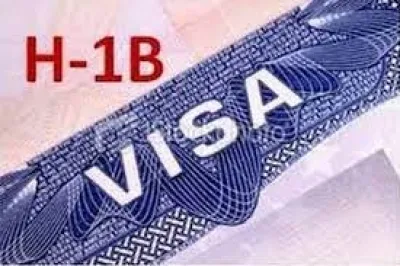How Will Indian IT Firms Tackle H-1B Visa Fee Hike?

Synopsis
Key Takeaways
- The H-1B visa application fee has dramatically increased to $100,000.
- Indian IT firms are expected to adjust their strategies to cope with this change.
- Local hiring and nearshoring are likely to become more prominent.
- The long-term impact on the sector may be mitigated by increased offshoring.
- Most firms may avoid the new fee altogether, making H-1B visas less attractive.
New Delhi, Sep 23 (NationPress) Indian IT firms are anticipated to modify their strategies in response to the recent substantial increase in H-1B visa fees introduced by the US government, according to a report released on Tuesday.
On September 19, US President Donald Trump enacted an executive order that raises the fee for new H-1B visa applications to $100,000, a significant leap from the previous amount of approximately $1,500.
This decision is likely to affect Indian IT companies, which have historically depended on the visa program to deploy skilled professionals to the US.
However, data compiled by Nuvama indicates that the overall effect on Indian IT firms might be minimal, as the industry has progressively diminished its reliance on H-1B visas over the last eight years.
“This transition has provided companies with a head start in mitigating the impacts of the recent policy shift,” the report stated.
Nuvama suggests that firms are likely to address the increased costs through strategies such as nearshoring, offshoring, and hiring more local talent in the US. Although some immediate financial and operational hurdles are unavoidable, increased offshoring is expected to alleviate pressure in the long term.
The report also highlighted that most Indian IT service providers may avoid incurring the new fee entirely, as it renders H-1B visas economically unfeasible.
The average salary for Indian IT professionals on H-1B visas ranges between $80,000 to $120,000, and adding an additional $100,000 fee would make the arrangement financially untenable.
Instead, companies are likely to explore other avenues such as renegotiating contracts with clients to distribute costs, hiring locally in the US, or expanding nearshore operations in countries like Canada and Latin America, which share the same time zone as the US.
A heightened emphasis on offshoring to India or other cost-efficient regions is also anticipated, according to the report.
While the industry may experience volatility in the short term, the situation is expected to stabilize as IT firms adapt to the new landscape and uncover more efficient business practices.









